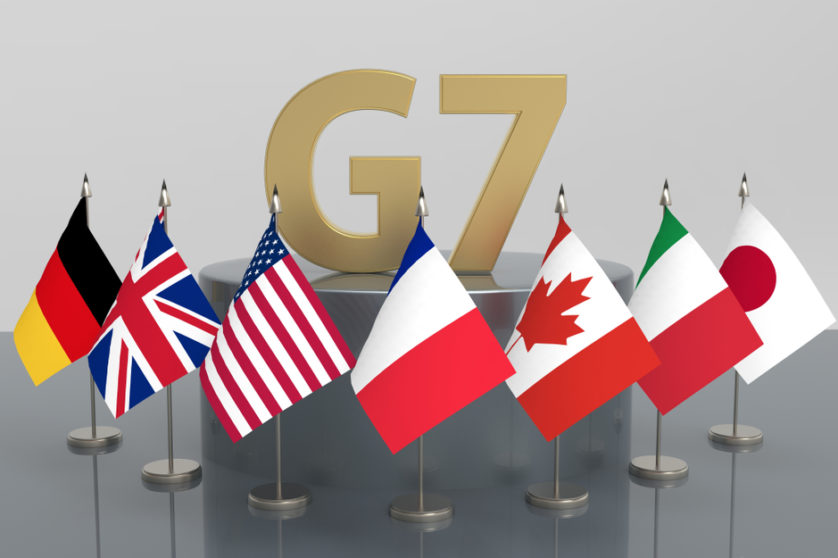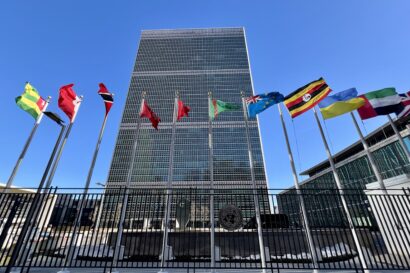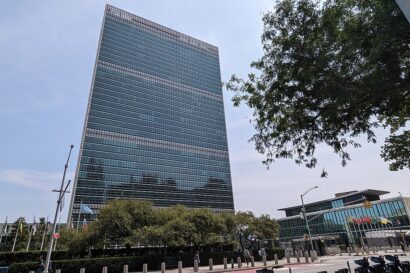This weekend, the Group of Seven (G7) finance ministers completed a “historic global tax agreement,” a “seismic” and “landmark deal,” that will create an international tax system “fit for the 21st century.”
Or so, at least, is the narrative presented by some of the G7 folk (most prominently UK chancellor Rishi Sunak), which has been swallowed by large swathes of journalists and observers hook, line, and sinker.
Yes, certainly, if we look purely at the content of the G7 announcement, it looks transformative: A global minimum corporate tax of at least 15%, and a reallocation of taxing rights for the largest and most profitable multinationals towards market jurisdictions, where sales are made.
But the significance of the G7 announcement has been massively overblown and oversold, in both political and normative terms. There are at least four parts to this argument worth highlighting.
First, the G7 just isn’t as important as it once was for the making of international tax rules. The G7 used to be the prime high-level political forum, the most important gathering of ministers and state leaders, setting out the direction for technical negotiations conducted by the OECD, and making the key decisions.
But following the global financial crisis, the locus of global tax governance shifted from the G7 towards the Group of Twenty (G20) – and with significant implications. The G20 includes not just the ‘old’ powers of Europe and America but also the ‘rising powers’ of China, India, Brazil and others, bringing together a much more powerful and diverse geopolitical coalition.
It is this expanded power base, the might of the G20, that has made it possible for the international community to even consider such comprehensive and progressive reforms as a global minimum corporate tax. The shift to the G20 has meant global tax reform initiatives have far more teeth in recent years, with a stronger and more credible threat of sanctions for those unwilling to follow along (e.g. tax havens). If this were still a G7 world, we probably wouldn’t be having these discussions.
But because the G20 includes other countries than the G7, with different interests in international taxation, the contents of global tax reform are also shifting, less defined exclusively by the ‘old’ powers, increasingly marked by the preferences of ‘rising’ powers, whose voices are becoming harder and harder to ignore.
Thus, framing the G7 agreement as some sort of endpoint, as a final stop for global tax reform, fundamentally betrays these empirical and political developments, and overlooks the importance of the G20. Of course, it is a significant signal that seven of the most politically powerful countries agree on principles of reform, but in truth this doesn’t mean much unless China, India, Brazil and the rest of the G20 are on board. (They will likely be, but for other reasons I’ll get to, not because “the G7 said so”.)
Second, there’s another important shift of political power that means it’s not all G7: that from the OECD to the “Inclusive Framework”. Ten years ago, negotiations on reforming the global corporate tax system was practically conducted at the OECD amongst its 30-something member states, where the G7 all feature prominently. So you could’ve been forgiven for saying the G7 pragmatically decided things. But that’s no longer the case.
Today, negotiations fall under the auspices of the “Inclusive Framework”, a forum established in 2016 under the OECD, at the behest of the G20. It has a vastly expanded membership, now gathering 139 countries and jurisdictions, all formally on an “equal footing” to decide the direction of the international tax system. While significant inequalities in power and resources remain, the dynamics of the Inclusive Framework have unquestionably shifted decision-making authority away from the ‘old powers’ and towards emerging economies and developing countries.
So, again, when the G7 are presented as the ultimate brokers of a global agreement, as the key decision-makers, it is indicative of a significant misunderstanding both of the raw political process and the shifting power relations of global tax governance. The G20 and the Inclusive Framework are the key decision-making authorities here, not the G7.
Third, content-wise the G7 announcement simply doesn’t entail much noteworthy new information. Let’s look at the bits of the G7 “tax deal”. The first component is a global minimum tax of “at least 15%”. The global minimum tax itself has been under discussion at the G20 and the Inclusive Framework since 2018, and the member states have reaffirmed in status reports, in high-level communications, and in negotiations several times their commitment to the principle, so we already knew they were supportive (although inevitably much technical work remains – the G7 announcement doesn’t change that.) The “at least 15%” bit is sort of new, but if you paid close attention you’d have noticed it came out of discussions at the Inclusive Framework’s Steering Group – a 24-country committee including China, India, Brazil, Nigeria and others alongside six of the seven G7 members – rather than the G7 itself.
The second component is a reallocation of taxing rights for the largest and most profitable multinational companies, with 20% of their profits above a 10% margin awarded for market jurisdictions (where sales are made) to tax. Hmm, where we have heard that before? Oh right, it’s been the basis of negotiations at the Inclusive Framework for more than a year, and that direction of travel is only reaffirmed by the G7 announcement, as it has been again and again previously in other communications. The specification that it is “the largest and most profitable” firms that are in scope is a recent change arising from Joe Biden and Janet Yellen’s interventions, but again something that is being discussed primarily at the Inclusive Framework’s Steering Group, not the G7.
Thus, while the political signal of the G7’s formal announcement certainly carries weight, the content of that signal has been interpreted as much, much more novel and groundbreaking than it really is.
Fourth, beyond the misrepresentation and misinterpretation of the political process, the political power relations, and the substantive content of the announcement, the portrayal of the G7 as key, final decision-makers is a significant problem from a normative perspective. The G7 can’t decide, but also the G7 shouldn’t decide how to reform the global tax system.
Inevitably, global tax governance reflects established power structures and the fundamental inequalities between countries in terms of their ability to influence global policy-making. And so it is obviously the G7 who stand to gain the most from the “historic global tax deal” that they have brokered.
But there is an obligation to point that out, to question and critique it, rather than accept and buy into it. There is a real chance, with the emergence of the G20 and the Inclusive Framework, to build more inclusive, more democratically accountable, and more sustainable global tax rules. And there are already signs that we are headed in that direction, though it is still very far from reality.
Acknowledging that it is not the G7 that decide these matters is an important starting point. Acknowledging that emerging markets and developing countries do have a voice, and should have a voice, is crucial. That, in addition to the raw political realities, is why we should not simply accept the prevailing narrative around the G7’s “historic global tax deal” from this weekend.
Republished from the original with the author’s permission.


